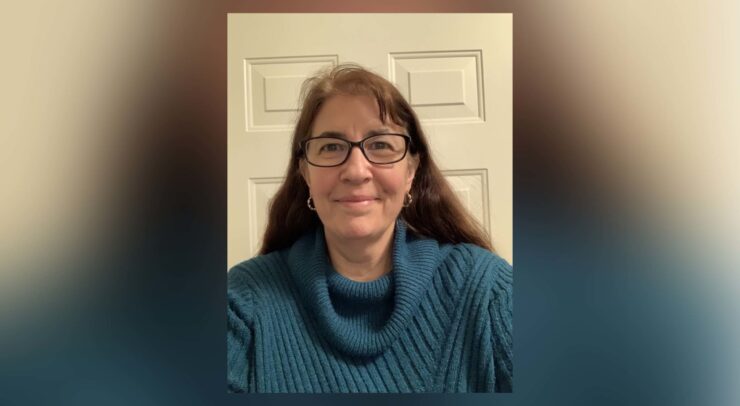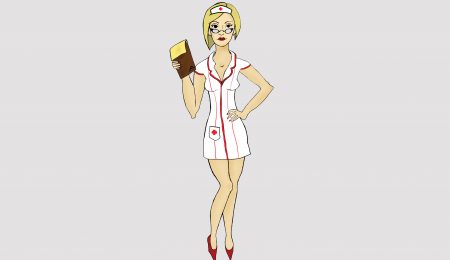Highlighting professors that have made learning during the pandemic as smooth as it can be
We have now entered another uncertain semester of teaching — from online (synchronous and asynchronous), hybrid, and in-person teaching and learning. In the atmosphere of a shifting public health situation, there have been many unforeseen events resulting in ups and downs for most students. There have been changes, adjustments, and frustrations, but there have also been countless successes for students and professors alike.
Going into a new year and a new semester, let us again look back at a few of the professors that have not only made learning accessible and enjoyable, but have also helped and guided students throughout.
In the midst of changes experienced by professors as well as students, these professors have had great impacts on students by brightening semesters, and in many cases, shaping lives. Just like the exceptional professors in this article, there are many more professors that were commended and praised by students that could not be included in this article — we may just have to publish a part three.
Benoit Faucher: GEO2334/GEG3306: Quaternary Geology and Climate Change
Benoit Faucher, a professor in the department of geography, environment and geomatics, taught the cross-listed class Quaternary Geology and Climate Change this past fall semester. Many students commended the way that he helpfully accommodated students and was able to switch from in-person to online and hybrid classes.
“From the start of the semester, it was clear that professor Faucher’s top priorities included our engagement in the material and our safety. We were still able to attend multiple field trips, which was both a much-needed break from Zoom classes, but also a great hands-on way to understand the course material,” explained Michelle Christy, a fourth-year environmental science student.
Professor Faucher shared his thoughts on the past few semesters and his experiences teaching classes in online and hybrid formats.
”Completing an academic degree was already challenging enough before the time of COVID-19… More than ever, educators need to provide inclusive, equitable, and flexible high-quality teaching to their students, and I aimed at doing so while giving the GEO2334/GEG3306 course last fall,” he said.
“I felt privileged to share my passion for quaternary science during the in-person lectures and field outings and have the opportunity to have face-to-face interactions with the students.”
“Overall, I am thankful for meeting motivated and talented students and wish them all nothing but the best in their future endeavours,” he concluded.
Heather Murray: HIS3150: Selected Topics in American History
Heather Murray is a history professor in the faculty of arts, who, last semester, taught HIS3150: American Thought and Culture Since 1865. Students emphasized that professor Murray was not only a great professor, but also extremely supportive throughout COVID-19.
Claire Park, a third-year history student, has taken classes with professor Murray three times since the pandemic started in the winter of 2020 because Murray “without a doubt, out of my professors, is the one who has best handled the transition to online teaching.”
“[I was] blown away by how she adapted her teaching to a virtual format. Her passion for teaching and her love for history and learning in general really shines through in virtual teaching as much as it did in in-person teaching,” she said.
“She has been so accommodating throughout the pandemic; providing extensions when needed, providing encouragement and as much help as you needed via office hours or after class.”
“It feels like nobody ever really wants to talk and engage in class discussions over Zoom and it was never a problem in her classes. Her passion and love for the subject and teaching really shined throughout discussions. She really is a professor who has made this pandemic easier for me and so many other students.”
Professor Murray’s perseverance and optimism were evident as she shared the positives which have come from the past few semesters online.
“I really miss teaching face to face and doing stuff like historical baking, which can’t be offered in COVID-19 times,” she admits. “But I have found that I’ve gotten to know more students than before in the larger groups in part owing to the parallel conversations in the chat.”
“And there’s an interesting voice that surfaces in the chat, somewhere in between the written and spoken word. Anyone who teaches anything to do with the history of medicine or health or science is lucky because the pandemic has injected a lot of energy into those fields and has encouraged students to pose different questions of the past.”
“I’ve been impressed with the generosity and persistence and resilience of the students, even when a lot of people are struggling with built-up exhaustion, lack of motivation, and sometimes depression and anxiety, particularly this year, which seems to be hitting everyone quite hard — students, and probably professors, too,” she shares. Murray adds that “I’m also lucky that the professors in the history department have been generous in helping each other and sharing teaching tips and ideas and some of them are, like, tech geniuses.”
Keelin Pringnitz: SOC2191: Sociology of Religion
Keelin Pringnitz, a part-time professor and PhD student at the University of Ottawa in the department of classics and religious studies, taught SOC2191. Multiple students spoke warmly of her in their recommendations, due to her adapted teaching methods online, the immersive conversations that occurred in her classes, and her understanding.
Xavia McMillan, a third-year psychology student, said, “professor Pringnitz provides an inclusive classroom space that encourages open discussion on a multitude of interesting topics. Keelin was able to effectively overcome the barriers of a course delivered solely online, providing stimulating course material to students that was highly accessible. This prof went above and beyond in addressing student concerns and made the course very digestible and enjoyable overall.”
A second-year geology student, Jade Minty, recommended that everyone take her class, and emphasized that, “Pringnitz is a gem inside and out. She always made time for students who wanted to discuss classwork and went beyond expectations 100 per cent of the time. She consistently expressed concern for her students and made sure all their questions were answered. I wish her the best at all times because she truly deserves it.”
Professor Pringnitz, elaborating on her experiences teaching online, spoke warmly in return, saying, “teaching has been such a privilege, and I had such incredible students.”
“The effects of the pandemic have compounded students’ struggles and reinforced pre-existing inequities. Teaching online was a new endeavour for me, and I wanted to make the course as accessible as possible in light of the uncertain times we find ourselves in. Being flexible and compassionate goes a long way. My goal is to ensure students have the resources to succeed despite any adversities they may face.”
Andra Smith: PSY3301: Behavioural Neuroscience
Andra Smith, a psychology professor in the faculty of social sciences, taught Behavioural Neuroscience (PSY3301) in the winter 2020 semester, alongside various other psychology courses. Students described professor Smith as doing everything she could, and more, for students, especially during online courses.
Annaliese Haring, a fourth-year psychology student, explains, “Smith taught the content in both her introductory neuropsychology course and neurobiological foundations course in a very captivating way, considering the online circumstances. She managed to capture the interest of students, advocated for all of us doing well, and was very accommodating to those who needed it.”
“Every student in her class could tell how passionate she is about neuropsychology, and she provided an excess of additional resources to students regarding future career pathways and details about grad school applications. Overall, she goes above and beyond for her students.”
Professor Smith earnestly shared how she has worked through the changes that came with online classes, and what drove her to keep optimistic, including the students.
“To me, the students are the rockstars. I am grateful to them for showing up and for still having the drive to learn despite the circumstances. My passion for teaching about the brain and particularly how to have a healthy brain has never faltered and the students have continued to come along for the ride — what a journey it has been,” she detailed.
“Taking many deep breaths along the way I still love to teach, even online, and although I do miss their live energy, many great lessons have been learned and the students’ patience has been greatly appreciated.”
Michael Williams: ECH2310: Conflicts and Rights: Philosophical Perspectives
Michael Williams, a social sciences professor in the department of public and international affairs, taught Conflict Rights: Philosophical Perspectives (ECH2310) online in the fall of 2021. Students explained that professor Williams’ classes were enjoyable and that he was ready to help and support students.
Breana Sanders, a second-year biomedical science student, shared her perspective. “Online learning can be difficult for most, and extremely mentally draining. Williams made sure to let his students know he was there for them through these difficult times. I’ve never had a more supportive and understanding professor. Every time I’ve had discussions with him on my work, he’d give such great feedback, and I had always left feeling more inspired and empowered in myself.”
Professor Williams divulged what the switch to different forms of learning has been like for him, and what changes were made in order to make online a better learning environment.
“Since my lectures are usually quite interactive, shifting to online teaching has been challenging. I thought that for large courses, just trying to replicate live lecturing on Zoom was unlikely to work with my l approach, so I decided to take a chance and conduct the course through a combination of podcasts and live sessions. I was not sure how it would work out, but I am very happy that participants in the class found it effective.”
He also shared the ways that he has connected with students, even in online formats, saying, “I think a big challenge is trying to overcome the interpersonal distance of the online experience. Engaging in a little less formal setting like dedicated Q&A sessions seems to help offset this a little.”
The accommodations that both students and professors are, and have been, making for each other during these times have provided both groups with endurance, optimism, and the ability to learn and enjoy learning in any format. The kind words that countless students have had for professors (and vice versa) show the impact that one class can have on someone’s educational experience and life.





